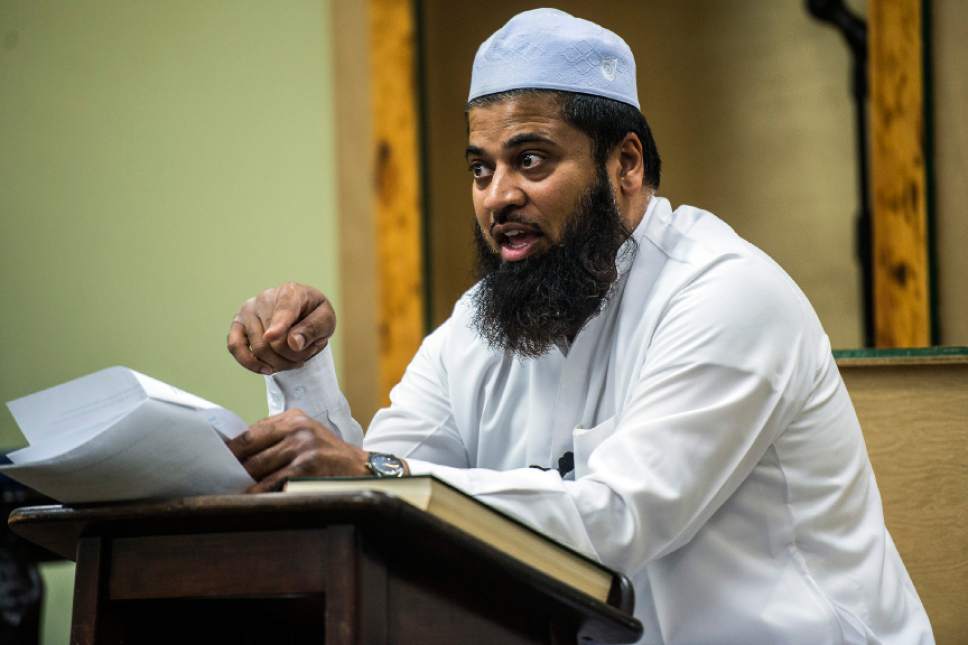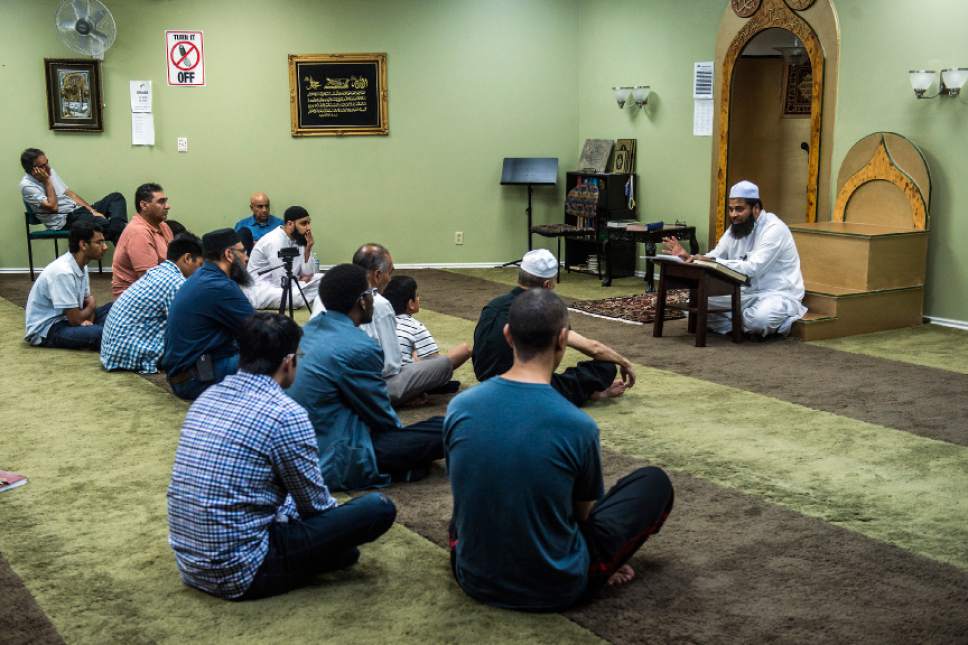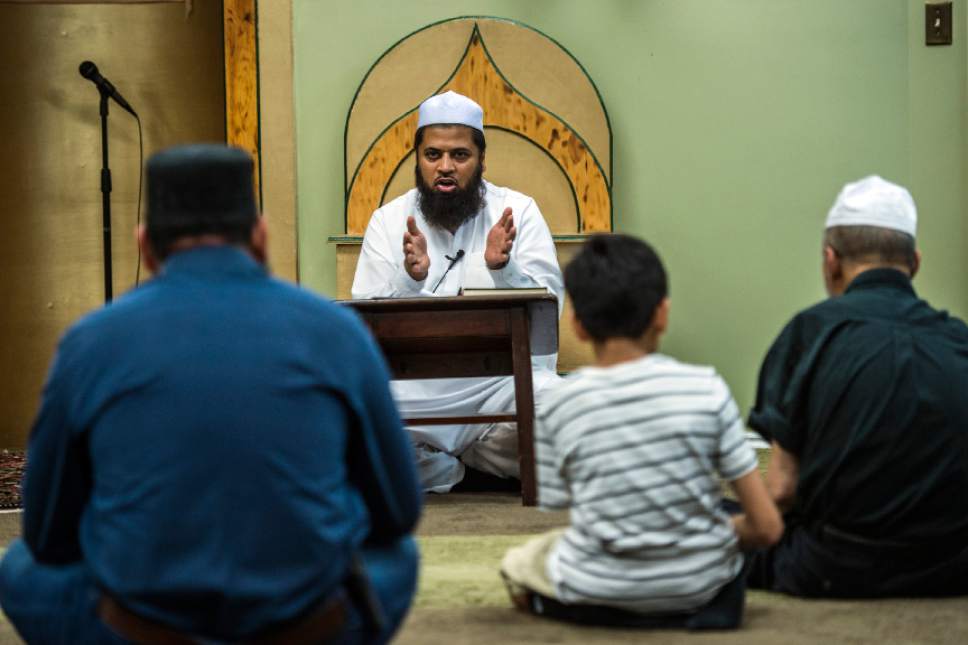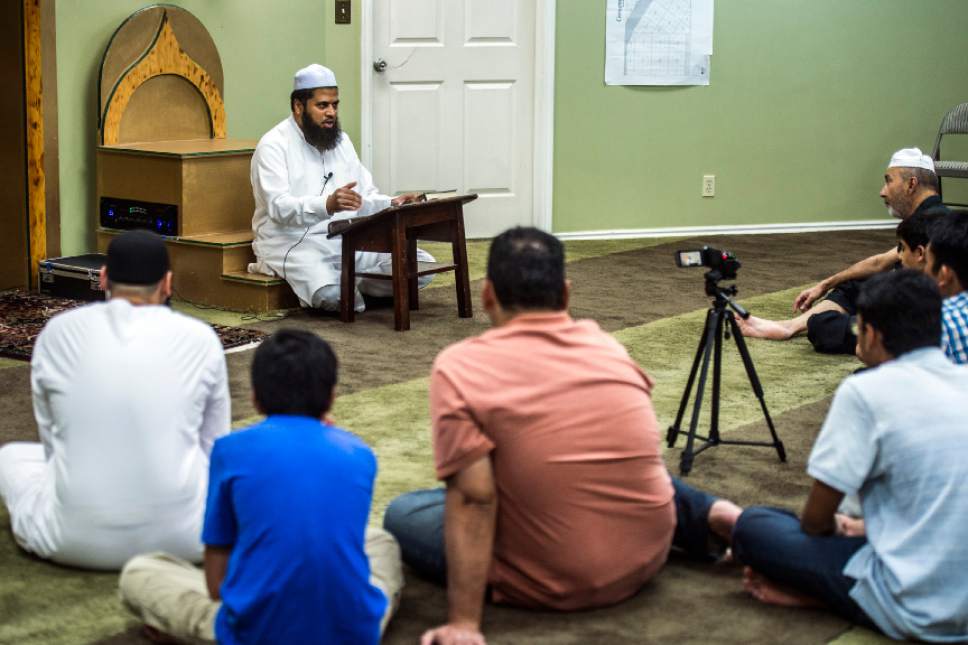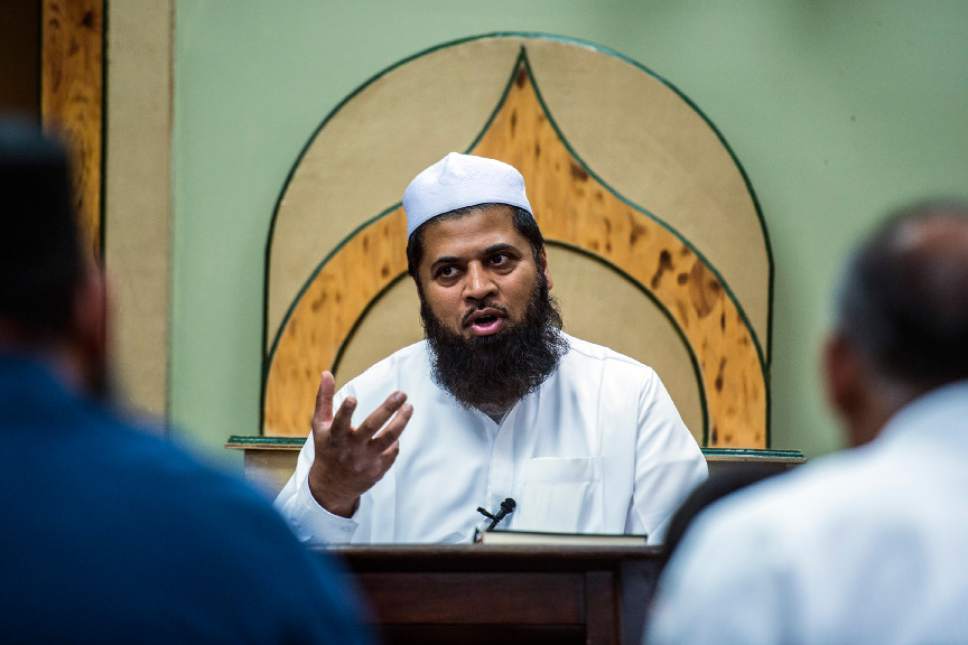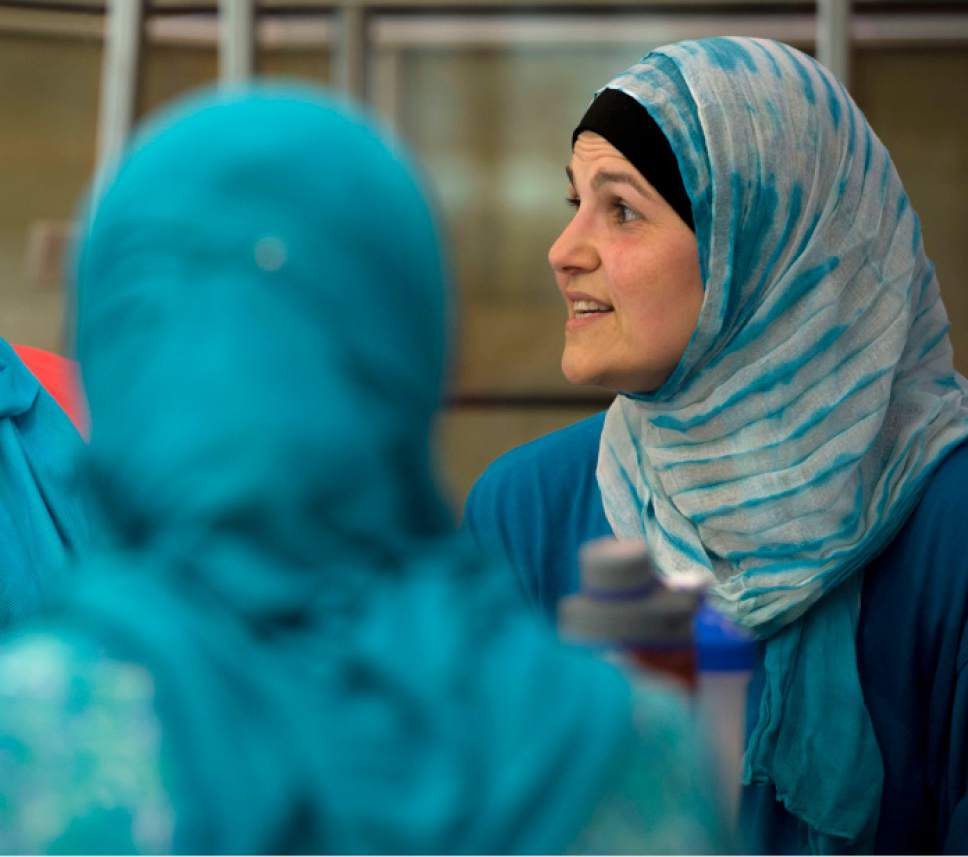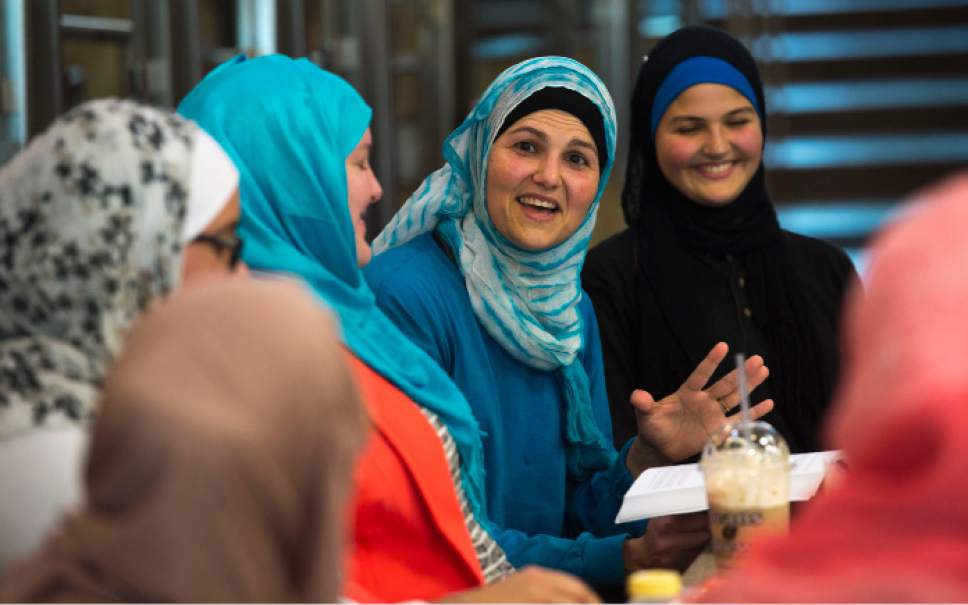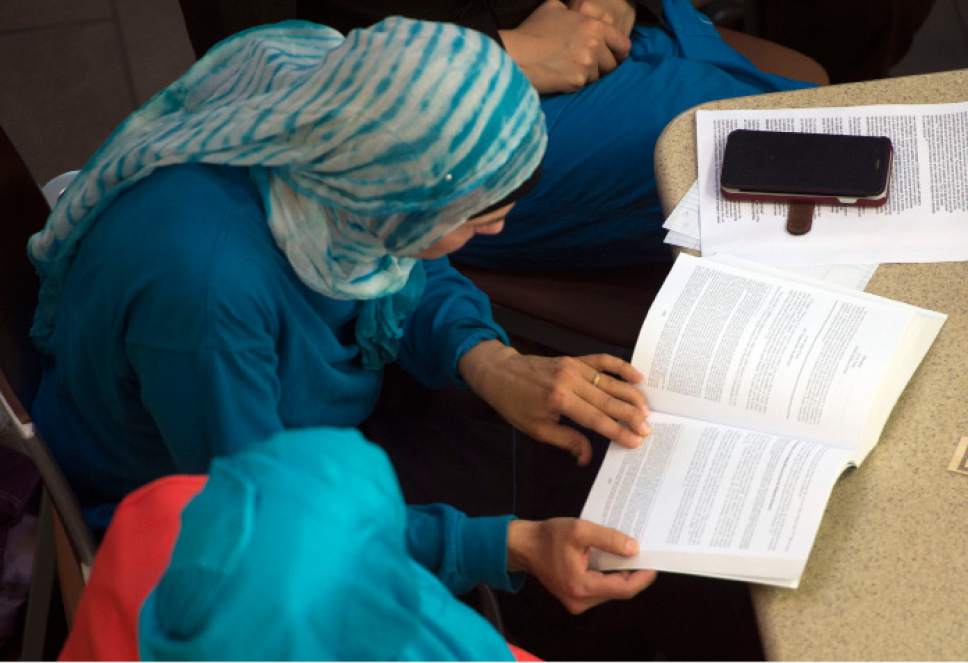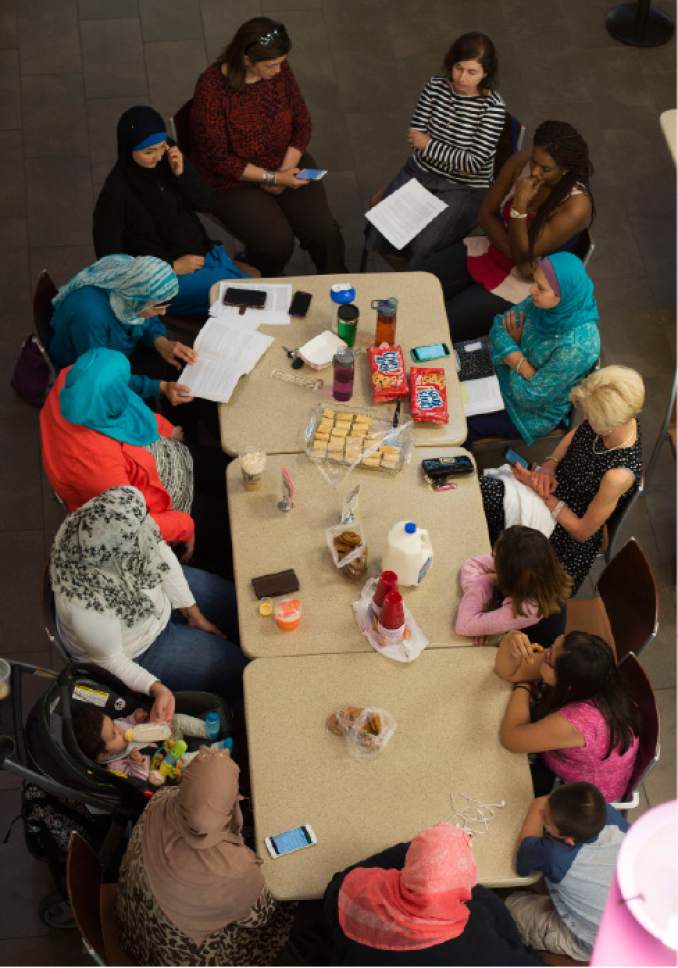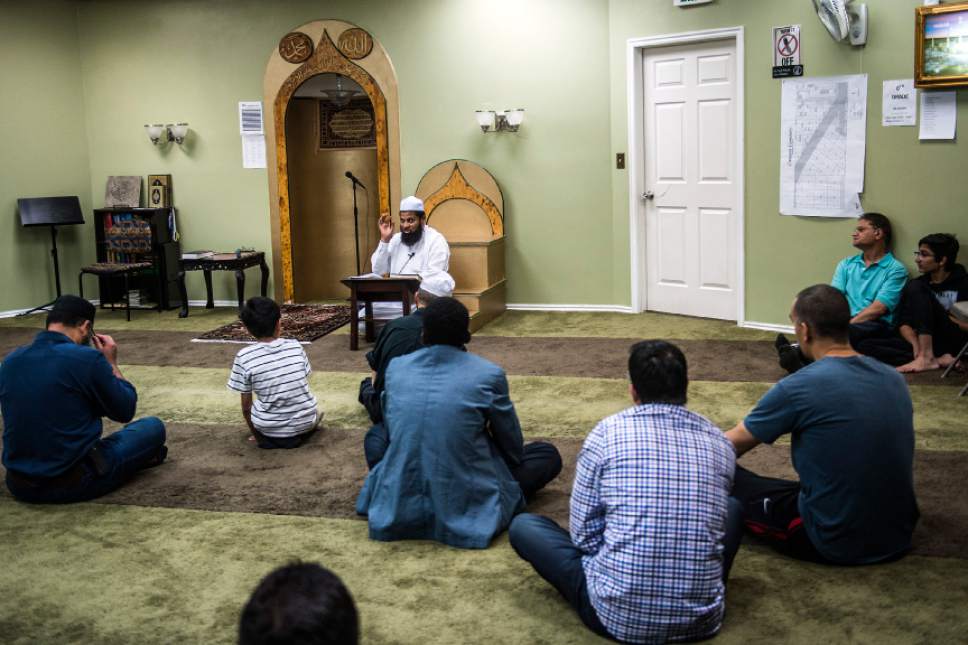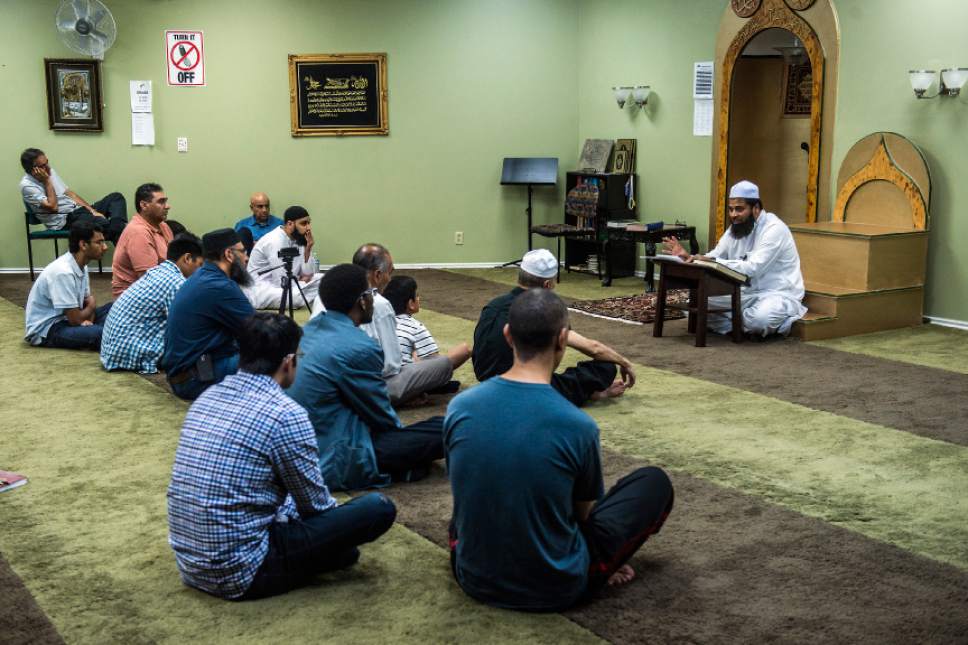This is an archived article that was published on sltrib.com in 2016, and information in the article may be outdated. It is provided only for personal research purposes and may not be reprinted.
What most Americans think they know about Islam's holy book is that it endorses violence against nonbelievers and the oppression of women. And on those issues, they surmise, it's way worse than the Bible.
Because of such assumptions, Utah Muslims often get these questions: Where does the Quran say that people should blow themselves up for God? Where does it argue women should be kept inside or cover themselves completely? Or that Muslims should launch jihad against their enemies?
Answers: Nowhere — at least not without interpretive biases.
What most Americans don't know about Islam's sacred volume is its statements about tolerance, its condemnation of suicide, its retelling of biblical stories with a twist (like how God told Abraham to sacrifice his son, Ishmael, not Isaac), its view that Jesus was a divine messenger who will be resurrected or its progressive-for-the-time approach to women's inheritance rights.
Or that the text was dictated by an angel.
Apparently, lots of Muslims don't fully understand the book's meanings, either.
Shuaib Din, imam at the Utah Islamic Center in Sandy, believes churchgoing Christians know the Bible better than mosquegoing Muslims know the Quran.
"The problem with many Muslims today," Din says, is that they see the Quran as a "blessed book and rewarding but not as personally life-changing or used to better society."
Starting Monday, though, more than a billion Muslims worldwide will have another chance to explore the text upon which their faith is built.
As part of their 30-day Ramadan experience — which also includes fasting from dawn to dusk — they are expected to read, recite or listen to the entire 600-page book.
Though Muslims receive blessings for every letter in the book they recite, Din says, that isn't why followers should read it.
The Quran, originally written in classical Arabic, has teachings about "how to solve issues like racism and injustice," he says. "It should have some practical implementation."
Pakistani mother Shehnaz Ali, a North Salt Lake resident who has read the book at least 25 times, believes it carries the same message as all religious books: Be good, worship God, take care of others, live an ethical, noble life.
Because Ali is not a native Arabic reader, she is studying the language, its cadence, rhymes and diction to get the most from Quranic verses.
"When you hear the sounds and feel [the teachings] with your five senses," says the Sunday school teacher at West Valley City's Khadeeja Islamic Center, "you feel like Allah [God] is talking to you directly. It's a face-to-face communication."
Just like Muhammad and the angel.
—
In the beginning, sort of • An illiterate 40-year-old merchant in seventh-century Mecca (now in Saudi Arabia) named Muhammad routinely went to a mountainous cave to pray and ponder.
On one of these secluded occasions, Muhammad said that Angel Gabriel visited him and poured out revelations about God. Within three years, the tradesman had told some followers about these messages, including that God was one and that all should submit (Islam means submission) to the Lord's will.
During the next 23 years, the angel revealed many divine truths, which Muhammad memorized and shared with others, who likewise committed the sayings to memory. These insights were passed orally from person to person and, with Muhammad's consent, compiled into a single whole.
Some followers wrote down the prophet's words on "pieces of papyrus, flat stones, palm leaves, shoulder blades and ribs of animals, pieces of leather, wooden boards," writes Cyril Glasse in "The Concise Encyclopedia of Islam," "and the hearts of men."
Quran means "reading" or "recitation." The book is known as "the collection of pages."
The holy text "contains laws for society and warnings of the end of the world, descriptions of judgment, of heaven and of hell. There are stories of biblical figures, but often in a form surprisingly different from that of the Hebrew Scriptures, as if the same events were being witnessed from a different point of view," Glasse explains. "It also contains stories of figures unknown to the Bible, and passages which are metaphysical and nondescriptive."
The subject "is above all [God's] divine nature," he says, "and the means of salvation."
The first "Muslim," though, was Adam — same as in the Bible — who was followed by Moses, Abraham, David and Jesus.
Mohammad, they believe, was simply the last in a long line of prophets to teach about the creation, the Ten Commandments and the Almighty's expectations for humankind.
"If we differentiate among prophets," says Ali, the Sunday school teacher, "we are not Muslims."
—
What about women and war? • Anum Ibrahim just graduated from the University of Utah, where strangers routinely stop her with questions about her hijab, or head covering.
The Quran calls for women to be modest in public, which is why she wears a traditional scarf. But the text does not dictate how she wears it or how it is styled.
"People have asked me if I shower in it or if I have to wear it in front of my dad," says Ibrahim, a Pakistani Muslim born and reared in Utah. "Or if I have to wear all black."
How much a woman wants to cover is left to her own interpretation, the young graduate says. "There is no one strict standard. Every country does it differently. You can still express yourself."
Converts also presume the Quran is anti-woman, Ibrahim says, but the book actually has "a lot of feminist ideas. It follows the same [egalitarian] ideas [new believers] already had about women. Even 1,400 years ago, the book has many of the same feminist ideas we have today."
She reads the sacred writ with a commentary every night before bed.
"It's the word of God," she says. "Each time something else catches my eye, this is a miracle."
Iqbal Hossain, former president of the Islamic Society of Greater Salt Lake, points to female presidents in Muslim countries as evidence that the religion doesn't block women from achievements in larger society.
"God said that men and women have different roles," Hossain says, "but that doesn't mean women have to be secluded. Women who want to [can] come to the mosque to pray or have a job or lead an army."
After last year's killing spree in San Bernardino, Calif., by a Muslim couple, Hossain faced increased questions about the faith's notion of jihad.
The Quran talks about Muhammad being driven from his home in Mecca by enemies, with whom he battled constantly.
The prophet then said jihad — or making war – was allowed only in cases of defense, not as the aggressor.
But the Muslim prophet further discussed the term to mean battling against inner demons, Hossain says, "fighting the everyday bad desires of your heart."
In short, struggling to do good.
—
One with scripture • Amr Abdelghany, a U. doctoral student from Egypt, reads the Quran aloud every chance he gets — at home, at school, at the bus stop, between errands.
It teaches Muslims how to live, how to deal honestly in business, he says, and how to deal fairly with neighbors and relatives.
Abdelghany's favorite passage is, he says, paraphrasing, "whoever kills a soul ... it is as if he had slain the whole human race. And whoever saves one, it is as if he had saved mankind entirely."
The student, who works with the U.'s Muslim Students Association, is highly motivated by that second sentence.
"I'm one of the coordinators for the school's annual blood drive," he says. "It's part of my effort to save human beings."
And, the young believer reiterates, it's all part of his obligation to abide by THE book.
pstack@sltrib.com Twitter: @religiongal —
From the Quran
2:62 • Verily! Those who believe and those who are Jews and Christians and Sabians [neither Jews nor Christians], whoever believes in Allah and the Last Day and does righteous good deeds shall have their reward with their Lord, on them shall be no fear, nor shall they grieve.
2:225 • Allah will not call you to account for that which is unintentional in your oaths, but he will call you to account for that which your hearts have earned. And Allah is Oft-Forgivng, Most-Forbearing.
4:10 • Verily, those who unjustly eat up the property of orphans, they eat up only fire into their bellies, and they will be burnt in the blazing Fire.
17:37 • And walk not on the earth with conceit and arrogance. Verily, you can neither rend nor penetrate the earth, nor can you attain a stature like the mountains in height.


